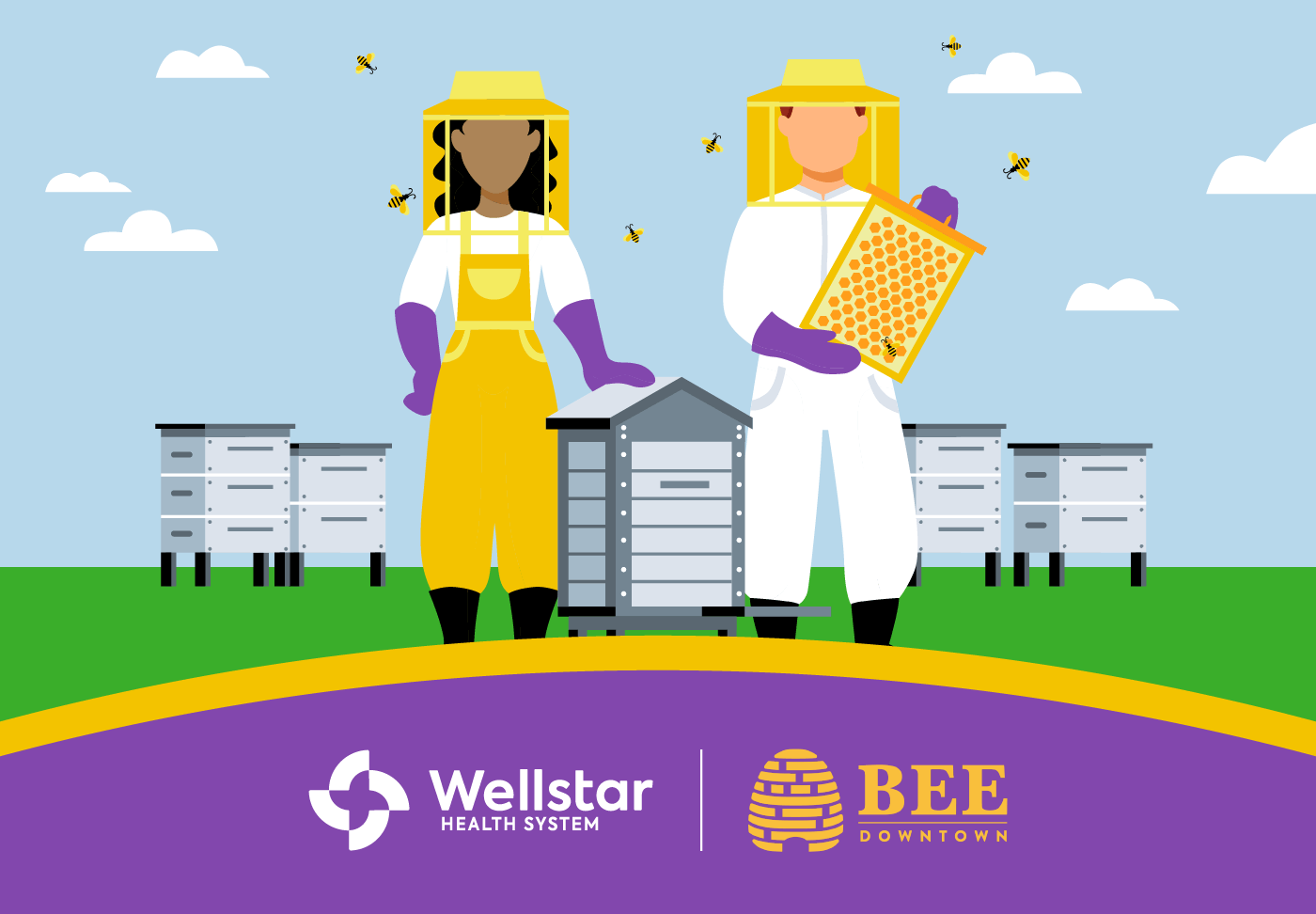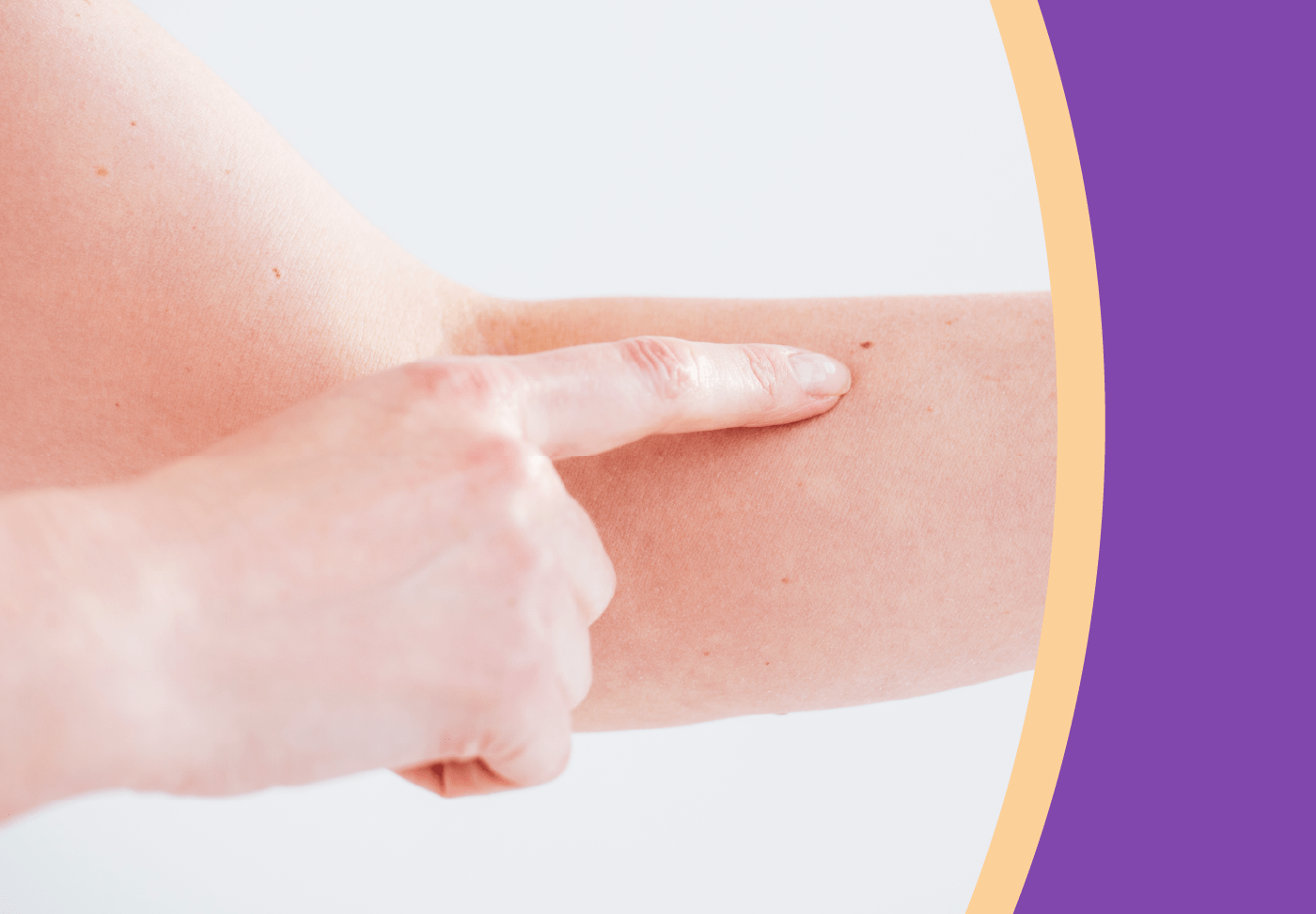Mental health is an essential part of whole-person care. Whether you're feeling overwhelmed or want to build resilience, small steps can make a big impact.
At Wellstar, we’re here to support your mental well-being and help you thrive. Our
Behavioral Health
team offers specialized care close to home, so you can feel your best both physically and mentally.
Here are five expert-backed strategies to help protect your mental health and strengthen your overall wellness.
Pay attention to early signs of stress.
Recognizing stress early is key to managing it effectively. When stress becomes chronic, it can affect both your mental and physical health. Learning to identify warning signs can help you take action before it escalates.
This is true across all areas of life, including the workplace, where job stress can quietly build over time and lead to more serious mental health concerns if left unaddressed.
“Paying attention to feelings of emotional exhaustion and general cynicism is important,” said
Dr. Ryan Breshears,
a board-certified clinical health psychologist and chief behavioral health officer at Wellstar. “Those are the foundational signs of occupational burnout, which certainly affects our well-being in the workplace, but when unchecked, can also spill over into our personal lives.”
That spillover can show up as irritability, mood changes, social withdrawal or insomnia. “Any of those could point to a problem that warrants intervention,” Dr. Breshears said.
Treat your whole health to support your mental well-being.
Mental and physical health are deeply interconnected—and we shouldn’t treat them in silos. At Wellstar, integrated care is a key part of our approach.
“I think the days of talking about problems that are physical problems versus mental problems are over,” said Dr. Breshears. “We have a body of research now and decades of science that show the interplay between the physical and the emotional.”
He explained that changes in thinking patterns can trigger physiological shifts in heart rate, stress hormone levels and more. Recognizing these mind-body connections can help you take a more proactive approach to your mental health.
“Wellstar is making a concerted effort to deconstruct old ideas about mental health and remove barriers to access,” Dr. Breshears added. “For example, we’re bringing behavioral health into
primary care,
cardiac care,
pediatrics
and
women’s health.
We want to strategically integrate behavioral health services wherever patients are receiving care.”
By treating the whole person and bringing behavioral health into every corner of healthcare, Wellstar is helping people take charge of their well-being in a way that’s compassionate, connected and convenient.
Prioritize recovery.
Stress is inevitable, and recovery is essential. Without it, your mind and body stay in overdrive, increasing your risk for burnout and long-term health issues. Taking time to recover is not a sign of weakness—it’s a strategy for resilience.
“Our bodies are designed to return to baseline, what we call homeostasis, after high-stress periods,” Dr. Breshears said. “Research suggests it's often the failure to prioritize recovery, not the stress itself, that actually contributes to the most lasting problems.”
Dr. Breshears shared a study comparing elite marathon runners to non-elite runners. The surprising finding? Elite runners were better at identifying stress early and adjusting their pace to recover, ultimately helping them perform better.
That same principle can apply to your mental health. If you notice signs of stress—like fatigue, irritability or changes in focus—take time to reset. That might mean getting more sleep, going for a walk, reaching out to a friend or seeking professional support.
Being intentional about recovery helps you maintain balance, build resilience and continue showing up for what matters most.
Nurture relationships and workplace well-being.
Meaningful relationships are a powerful buffer against stress. For many people, the workplace is a central source of community—and a critical place to nurture mental health.
“We’re social creatures,” said Dr. Breshears. "Having environments where people come in and feel good about their day-to-day interactions is really important.”
Dr. Breshears said it starts with employers being committed to understanding the inadvertent threats to their team’s well-being and removing barriers to care.
“First, I think we have to pay attention to the occupational drivers of stress on our employees and commit to resolving those issues,” he explained. “All of the human resources and benefits in the world will fail if we’re not also working upstream to eliminate the root causes. Secondly, we need to establish clear pathways so people can easily access support without all the stumbling blocks and delays they often run into.”
Employers who lead with empathy—and prioritize flexibility, compassion and connection alongside performance—help create cultures where people feel empowered to seek help when needed.
“We have to ensure that we have accessible resources,” Dr. Breshears said. “People bring their personal struggles into the workplace, and take their struggles in the workplace home. The lines have certainly blurred.”
Know when to seek help.
While self-care and support systems can go a long way, there are times when professional help is essential. Mental health conditions are common—and treatable. The sooner you seek help, the better.
This is especially true for men, who often face cultural and emotional barriers when it comes to seeking support.
“Men on average tend to delay help-seeking more than women,” Dr. Breshears said. “And this is especially true when men are suffering. Frankly, it's a mortality issue.” He noted that men are more likely to die by suicide and experience substance abuse disorders, which makes early intervention even more critical.
Dr. Breshears also emphasized the need to remove barriers and promote action: “We have to create environments in which people feel safe to talk about the struggles that they’re having.”
If you’re struggling, don’t wait.
Explore Wellstar Behavioral Health services
and
find the support you need today.
If you or someone you know is in crisis, call or text 988 for the Suicide and Crisis Lifeline, or contact the Crisis Text Line by texting TALK to 741741.




.jpg?rev=0c641d247be3492db97099991e0fef7f)